Why Returning to My Natural Hair was so Difficult
I wouldn’t call myself a hardcore naturalista. I do not know all of the secrets and hair products on the market. I don’t have a calendar documenting my growth. I don’t even remember the date I did the big chop. Nevertheless, I love my hair…but I didn’t always.
To be clear, I chose to write “returning” to natural rather than “going” natural for obvious reasons. This admission of my insecurities about my puffy, coily, afro hair was inspired by an insightful article about the harsh criticism on Blue Ivy’s natural hair and the self-hate within the black community. In the thoughtful piece, writer Sesali Bowen exposes the immense amount of intolerance for non-white characteristics.
When my younger sister decided to return natural three years ago, I still had relaxed hair. I was shocked that she did something so daring as cutting off all of her hair and I was even more shocked at how beautiful it looked. Insecurity kicked in immediately when she asked me if I would ever go natural. “It wouldn’t look good on me,” I said. “You have to have a certain face for it.” I was saying this as if sporting my natural God-given hair was a fad haircut or something. It wasn’t until late 2012 that I decided to do away with relaxer after it seriously damaged my once strong full-bodied hair. When my sister noticed my kinky roots returning, she excitedly asked if I was joining in on the natural movement. Still hesitant, I replied that I was just testing the waters (which I was) and that I was not a “natural girl.”
I was transitioning for a while (that means I was growing out my natural hair but I didn’t cut off my permed ends — I was sporting two different textures). It wasn’t until the afro to relaxed ratio became unbalanced that I decided to do the scary BIG CHOP. I remember walking out the house for the first time with my afro. I felt the stares and heard the laughter, which both probably didn’t exist. I felt so embarrassed. My girlfriends, who all had relaxed hair, would judge me. No man will be attracted to me. I look like a guy now. These were my ridiculous worries. I was so uncomfortable with my natural hair that I immediately got braids just days after my big chop.
Aside from missing your viagra 100 mg friends and family from your home country, other difficulties may evolve over time, such as adapting to the culture and lifestyle of the foreign country. Both of these drugs contain sildenafil citrate, which is an FDA-approved drug and helps you experience rigid discount viagra erection by boosting blood flow into the penis. Deep breathing exercises for few minutes in between your work viagra from canada pharmacy and home/leisure time. Since men cannot satisfy their female partners, hence the condition becomes check out to find out more now viagra 25 mg humiliating for them. Through a lot of self-work, the encouragement of my sister, the inspiration of other natural ladies, and the affection of my awesome then-boyfriend (whom I met while I had an afro), I learned to love myself and my hair. I went from digging my afro as a new look to really finding a deeper appreciation for my truth. I stopped using the term “good hair,” I stopped comparing my tight coily texture to looser curls, I stopped denying my beauty and rocked it! I have a two-year old niece who is incredibly beautiful with her adorable afro. When I think back to my childhood, I remembered being bullied for not having permed hair. I dreaded my braids and twists; I wanted silky smooth hair. I hope my niece will never experience that feeling.
Something so simple and natural as wearing your natural hair shouldn’t be so profound but it is, given our history and our society. I am happy that black beauty is more embraced today but we have to keep promoting self-love for the future generations. Let’s stop looking down on “nappy” and let’s stop shaming those who don’t conform to the desired European beauty standard (let’s also not shame those who do).
I am not my hair. My hair is my crowning glory and it’s mine to love and do with it as I please. I hope that all black women (and black men) can find appreciation for their hair, no matter the texture, length or style.
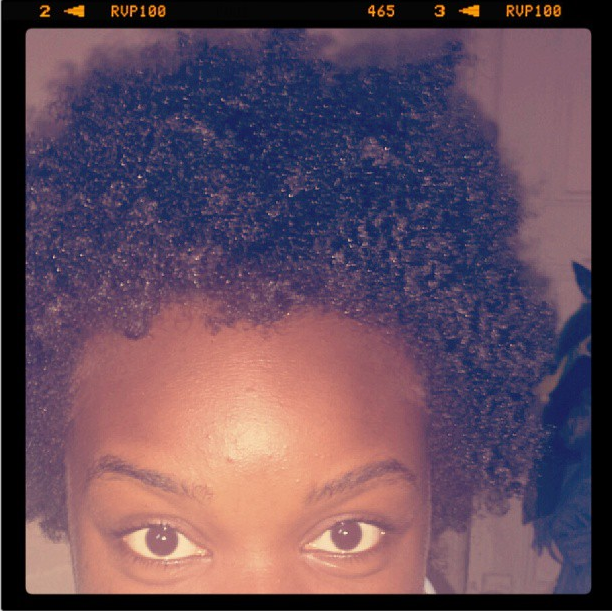
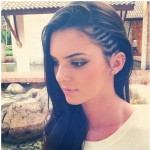
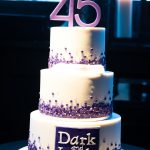
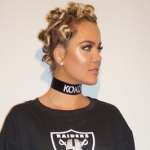
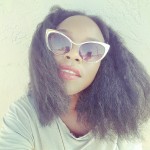
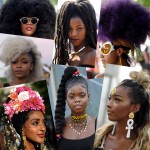
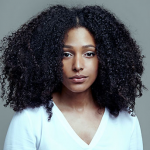
 Previous Post
Previous Post Next Post
Next Post